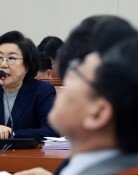South Korea, Japan leaders seek cooperation, stability
South Korea, Japan leaders seek cooperation, stability
Posted June. 10, 2025 07:39,
Updated June. 10, 2025 07:39
South Korean President Lee Jae-myung, in his first phone call with Japanese Prime Minister Shigeru Ishiba on June 9, emphasized the growing importance of bilateral relations amid today’s strategic environment. Lee expressed hope that the two countries could collaborate to address future challenges and pursue mutually beneficial cooperation based on shared national interests. Ishiba said both governments aimed to build on the foundations established so far to further advance their relationship. The presidential office added that the leaders agreed to cooperate within the framework of trilateral South Korea-U.S.-Japan ties to tackle various geopolitical crises.
The 25-minute call, held just five days after Lee took office, did not touch on often sensitive historical disputes. Instead, the conversation focused on congratulations, expressions of gratitude, and hopes for future cooperation. Lee subtly signaled a desire for Japan to adopt a more progressive stance on past issues by calling for a “stronger and more mature” relationship. Ishiba, meanwhile, stressed the importance of the “foundations built to date” and appeared eager to maintain the close cooperation established under former President Yoon Seok-youl’s administration.
Lee has been critical of the previous Yoon administration’s policy toward Japan, calling it “diplomacy of humiliation.” However, during the recent presidential campaign, Lee promoted a pragmatic approach to bilateral ties, cooperating where possible and reasonably addressing unresolved issues. On the controversial ‘third-party compensation’ plan for forced labor victims, which he once condemned as a major diplomatic disgrace comparable to the Samjeondo Treaty, Lee emphasized the importance of policy consistency and effectively signaled he would maintain the approach.
Still, the new administration is unlikely to pursue as proactive a rapprochement with Japan as its predecessor. Lee has proposed a two-track approach, separating historical issues from future cooperation, but insists past grievances must be resolved to build a forward-looking relationship. Given the ongoing tensions over historical disputes, it remains uncertain whether these intertwined issues can truly be separated.
Fluctuations in South Korea-Japan relations have often stemmed from Japan’s irresponsibility and lack of sincerity, but domestic policy shifts with each administration have also contributed. The bilateral relationship is closely tied to trilateral cooperation among South Korea, the U.S., and Japan as part of a broader alliance. Despite fierce domestic opposition, the Yoon administration’s bold revision of Japan policy was an unavoidable response to growing North Korean nuclear threats and escalating global geopolitical tensions. Policies from a disgraced government should still be preserved where appropriate.



![[광화문에서/김준일]단식 마친 장동혁… 중요한 건 단식 그 다음](https://dimg.donga.com/c/138/175/90/1/wps/NEWS/IMAGE/2026/01/23/133221688.1.jpg)
![라면 먹고도 후회 안 하는 7가지 방법[노화설계]](https://dimg.donga.com/c/138/175/90/1/wps/NEWS/IMAGE/2026/01/23/133219600.3.jpg)


